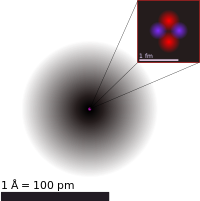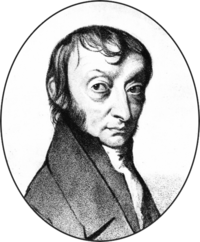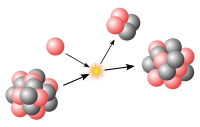-
Use Cases
-
Resources
-
Pricing
Ancient Origins
Increased scholarly attention on atomism
1300 - 1399
% complete
In the 14th century, the rediscovery of major ancient works describing atomist teachings led to increased scholarly attention on the subject, including Lucretius's De rerum natura and Diogenes Laërtius's Lives and Opinions of Eminent Philosophers.
Pierre Gassendi's modified theory of atoms
1600 - 1699
% complete
The French Catholic priest Pierre Gassendi revived Epicurean atomism with modifications, arguing that atoms were created by God and, though extremely numerous, are not infinite in number.
Image source: Atomic theory

Popularization of Gassendi's theory in France and England
1600 - 1699
% complete
Gassendi's modified theory of atoms was popularized in France by the physician François Bernier and in England by the natural philosopher Walter Charleton.
Development and Acceptance
Defense and acceptance of atomism by Boyle and Newton
1600 - 1699
% complete
The chemist Robert Boyle and the physicist Isaac Newton both defended atomism, and by the end of the 17th century, the idea of an atomistic foundation of nature had become accepted by portions of the scientific community.
Laws of chemical reactions emerge
1775 - 1799
% complete
Near the end of the 18th century, two laws about chemical reactions emerged without referring to the notion of an atomic theory.
Dalton's mistaken belief about atoms
1775 - 1799
% complete
John Dalton applied the term "atom" to the basic units of mass of the chemical elements under the mistaken belief that chemical atoms are the fundamental particles in nature; it was another century before scientists realized that Dalton's so-called atoms have an underlying structure of their own.
Joseph Proust's law of definite proportions
1797
% complete
First established by the French chemist Joseph Proust in 1797, this law states that if a compound is broken down into its constituent chemical elements, then the masses of the constituents will always have the same proportions by weight, regardless of the quantity or source of the original substance.
Image source: Joseph Proust

Flaw in Dalton's theory corrected by Avogadro
1811
% complete
The flaw in Dalton's theory was corrected in principle in 1811 by Amedeo Avogadro, who concluded that atoms combine in simple whole-number ratios and proposed that equal volumes of gases at the same temperature and pressure contain equal numbers of molecules.
Image source: Amedeo Avogadro

Periodic table and molecular architecture discovered
1875 - 1899
% complete
This position was eventually quashed by two important advancements that happened later in the 19th century: the development of the periodic table and the discovery that molecules have an internal architecture that determines their properties.
Advances in Understanding
Molecular motion explains pressure and heat
1738
% complete
In 1738, Swiss physicist and mathematician Daniel Bernoulli postulated that the pressure of gases and heat were both caused by the underlying motion of molecules.
Image source: Daniel Bernoulli

Discovery of isomers
1830
% complete
In 1830, Jöns Jacob Berzelius introduced the term isomerism to describe the phenomenon of compounds with the same composition but different arrangements of their atoms.
Hypothesis of different arrangements of isomers
1860
% complete
In 1860, Louis Pasteur hypothesized that the molecules of isomers might have the same composition but different arrangements of their atoms in three dimensions.
Image source: Isomer

Statistical mechanics applied to atomic theory
1860
% complete
In 1860, James Clerk Maxwell, a vocal proponent of atomism, was the first to use statistical mechanics in physics to describe the behavior of gases and the motion of particles.
Image source: James Clerk Maxwell

Tetrahedral arrangement proposed for carbon bonds
1874
% complete
In 1874, Jacobus Henricus van 't Hoff proposed that the carbon atom forms bonds to other atoms in a tetrahedral arrangement, which explained the existence of optical isomerism.
Image source: Jacobus Henricus van 't Hoff

Discovery of electrons
1897
% complete
Atoms were thought to be the smallest possible division of matter until 1897 when J. J. Thomson discovered electrons, which he called "corpuscles" or "electrons".
Image source: J. J. Thomson

Planetary atom models proposed
1897 - 1904
% complete
Between 1908 and 1913, Rutherford and his colleagues performed a series of experiments in which they bombarded thin foils of metal with alpha particles. However, Hantaro Nagaoka and Joseph Larmor had already suggested planetary models of the atom, and Ludwig August Colding proposed a solar system model of atoms in 1854.
Brownian motion explained by molecular motion
1905
% complete
In 1905, Albert Einstein theorized that the random motion of particles suspended in a fluid, known as Brownian motion, was caused by the continuous motion of the fluid's molecules.
Image source: Brownian motion

Validation of Einstein's Brownian motion theory
1908
% complete
Einstein's model of Brownian motion was validated experimentally in 1908 by French physicist Jean Perrin, who used Einstein's equations to determine the size of atoms.
Image source: Jean Baptiste Perrin

Rutherford's discovery of atomic nucleus
1909
% complete
Thomson's plum pudding model was disproved in 1909 by Ernest Rutherford, who discovered that most of the mass and positive charge of an atom is concentrated in a very small fraction of its volume, which he assumed to be at the very center.
Image source: Ernest Rutherford

Quantum Revolution
Quantum atomic models developed
1910 - 1912
% complete
This led to a series of quantum atomic models such as the quantum model of Arthur Erich Haas in 1910 and the 1912 John William Nicholson quantum atomic model that quantized angular momentum as h/2π.
Bohr's atomic model with quantized orbits
1913
% complete
In 1913, Niels Bohr incorporated the idea of quantized energy levels into his Bohr model of the atom, in which an electron could only orbit the nucleus in particular circular orbits with fixed angular momentum and energy.
Image source: Bohr model

Discovery of isotopes
1913
% complete
While experimenting with the products of radioactive decay, in 1913 radiochemist Frederick Soddy discovered that there appeared to be more than one variety of some elements.
Image source: Isotope

Sommerfeld's model with elliptical orbits
1916
% complete
In 1916, Arnold Sommerfeld added elliptical orbits to Bohr's model to explain the extra emission lines observed in atomic spectra.
Image source: Arnold Sommerfeld

Wave-particle duality proposed by de Broglie
1924
% complete
In 1924, Louis de Broglie proposed that all moving particles, including subatomic particles like electrons, exhibit wave-like behavior.
Image source: Louis de Broglie

Schrödinger's wave function equation
1926
% complete
Schrödinger's equation, published in 1926, describes an electron as a wave function instead of as a point particle, providing a mathematical framework for quantum mechanics.
Image source: Schrödinger equation

Heisenberg's uncertainty principle
1927
% complete
Werner Heisenberg first published a version of the uncertainty principle in 1927, which states that the more precisely one measures the position of a particle, the less precisely one can measure its momentum, and vice versa.
Image source: Uncertainty principle

Discovery of neutrons
1932
% complete
The nature of differing atomic masses was later explained by the discovery of neutrons in 1932: all atoms of the same element contain the same number of protons, while different isotopes have different numbers of neutrons.
Discovery of the neutron by Chadwick
1932
% complete
In 1932, James Chadwick exposed various elements to a mysterious radiation and deduced the existence of electrically neutral particles with a mass similar to that of a proton, which were later named neutrons.
Image source: James Chadwick

Key Facts
- John Dalton proposed the first modern atomic theory in 1803.
- J.J. Thomson discovered the electron in 1897.
- Ernest Rutherford's gold foil experiment in 1911 led to the discovery of the atomic nucleus.
- Niels Bohr developed the planetary model of the atom in 1913.
- The development of quantum mechanics in the 1920s revolutionized our understanding of atomic structure.
Source
This Atomic Theory timeline was generated with the help of AI using information found on the internet.
We strive to make these timelines as accurate as possible, but occasionally inaccurates slip in. If you notice anything amiss, let us know at [email protected] and we'll correct it for future visitors.
Create a timeline like this one for free
Preceden lets you create stunning timelines using AI or manually.
Customize your timeline with one of our low-cost paid plans
Export your timeline, add your own events, edit or remove AI-generated events, and much more
Free
$
0
free forever
No credit card required.
Basic
$
10
/month
billed annually
Cancel anytime.
Pro
$
16
/month
billed annually
Cancel anytime.
Common Questions
Can I cancel anytime?
Yes. You can cancel your subscription from your account page at anytime which will ensure you are not charged again. If you cancel you can still access your subscription for the full time period you paid for.
Will you send an annual renewal reminder?
Yes, we will email you a reminder prior to the annual renewal and will also email you a receipt.
Do you offer refunds?
Yes. You can email us within 15 days of any payment and we will issue you a full refund.
What if I have more questions?
Check out our pricing docs or send us an email anytime: [email protected].